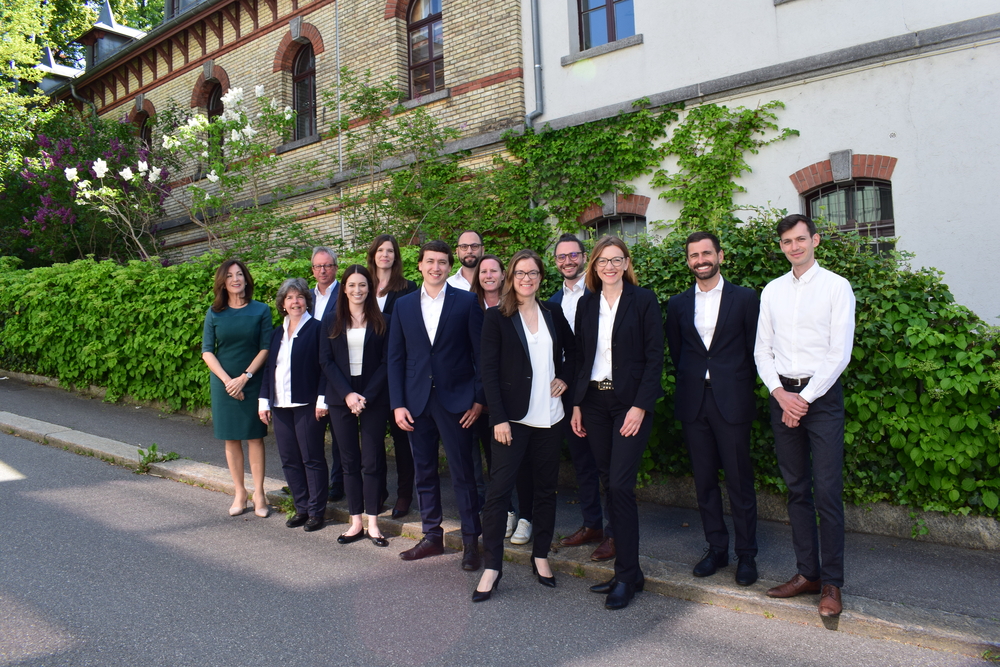In the multifaceted effort to fight climate change, we at Emerald believe that startups are unparalleled vehicles for innovation, and we are proud to do our part to support their growth. Alongside our funds that deploy capital from our limited partners, since 2014 we have managed a financing vehicle on behalf of the Swiss government. The Technology Fund provides loan guarantees for homegrown startups and small to medium-sized enterprises (SMEs) that have a clear climate impact; as of end-2021, its portfolio had reduced a combined total of 6.1 million metric tons of carbon dioxide equivalent (CO2e) (link in German). In recent years, stakeholders outside of Switzerland have acknowledged the Fund’s potential as a model for other countries looking to cultivate their own domestic, climate-focused ecosystem of startups and SMEs.
A World Bank initiative sums up the Fund’s newfound recognition. The initiative attempts to promote public credit guarantee schemes (PCGSs)—a catch-all term for the government loan programs that encompass the Technology Fund. PCGSs essentially see governments play the role of underwriter of last resort: if an SME fails to repay a loan, the government will step in to make the financier whole. This essentially eliminates the risk associated with funding the SMEs, especially in nascent sectors like decarbonization.
The World Bank has, in the last few months, sharpened its focus on PCGSs as mediums of climate action. A formal set of guidelines for PCGSs, initially issued in 2015, outlined key considerations and criteria for governments (many of which would lean on PCGSs as a way to keep companies afloat during the worst of the covid-19 pandemic). The World Bank is now drafting a climate change-related supplement to the guidelines, which it is aiming to publish this October.
The Technology Fund is taking center stage in this process—its head, Simone Riedel Riley, recently presented to the drafting commission, and as the only PCGS in the world with an explicit climate mandate, it is a pioneer whose success will likely inspire other PCGSs. Pietro Calice, World Bank liaison in charge of PCGSs, notes that the practice adopted by the Technology Fund to cover 100% of the risk of the lending institution de facto acts as “a substitute for venture capitalists or private equity firms, backed by a full state guarantee”.
Although the Fund stipulates that 40% of a round in which it participates must come from other sources, such as equity or shareholder loans, on average, its fundees raise an average of 2.3 times the government guarantee in private capital, including from rounds after the Fund’s participation. This indicates that the mere presence of the Fund as a backer can provide a symbol of confidence to other investors in the company’s overall prospects, thereby catalyzing further growth capital.
Firms the Technology Fund supports span the spectrum of sustainability, from building materials to chemicals to renewable energy. They must demonstrate clear greenhouse gas emissions impact to be eligible for funding; the average Technology Fund recipient in 2021 had a negative footprint of 20,100 metric tons of CO2e. Calice notes that PCGSs can also help clean up SMEs in polluting sectors that previously might not have incorporated climate into their business models, by, for example, putting green “strings” on funding.
Advice for PCGSs
As countries around the world pull an increasingly diverse set of levers to combat climate change, they can look to the Technology Fund’s model for PCGSs. Riedel Riley provides three key pieces of advice:
1. Establish simple, clear and unambiguous selection criteria. “Since a PCGS is financed by taxpayers’ money, all applicants have to be treated equally,” she says. “If you need to reject a request for a guarantee, the reason for the rejection must be transparent.”
2. Employ a seasoned partner, as the Swiss government has done with Emerald. “This can ensure the public sector doesn’t need to build up a whole new team to do, essentially, venture vetting,” Riedel Riley says.
3. Position the loan guarantee floor and ceiling appropriately. “If you give [a small startup], say, $30 million, how are they going to pay that back? It’s risky as repayment might depend on a successful sale of the startup,” she says. “Don’t encourage your recipients to take out loans that are too big for them.”
Riedel also cautions that the emissions impact of Technology Fund recipients is not factored into Switzerland’s official domestic carbon budget, largely due to the fact that most of its portfolio companies are export-oriented, making their country-specific contributions hard to pin down. “You need to avoid double counting,” she says.
Nevertheless, the overarching lesson of the Technology Fund is that with careful planning and oversight, PCGSs can flourish and meaningfully contribute to climate agendas around the world. Calice, for one, is bullish on their prospects: “In five years’ time, I expect the majority of PCGSs around the world will have designed and implemented a roadmap to green their strategy and operations,” he says.
Disclaimer: Emerald Technology Ventures AG, along with subcontractor South Pole, is managing the Swiss Technology Fund on behalf of the Swiss Federal Office for the Environment FOEN.
